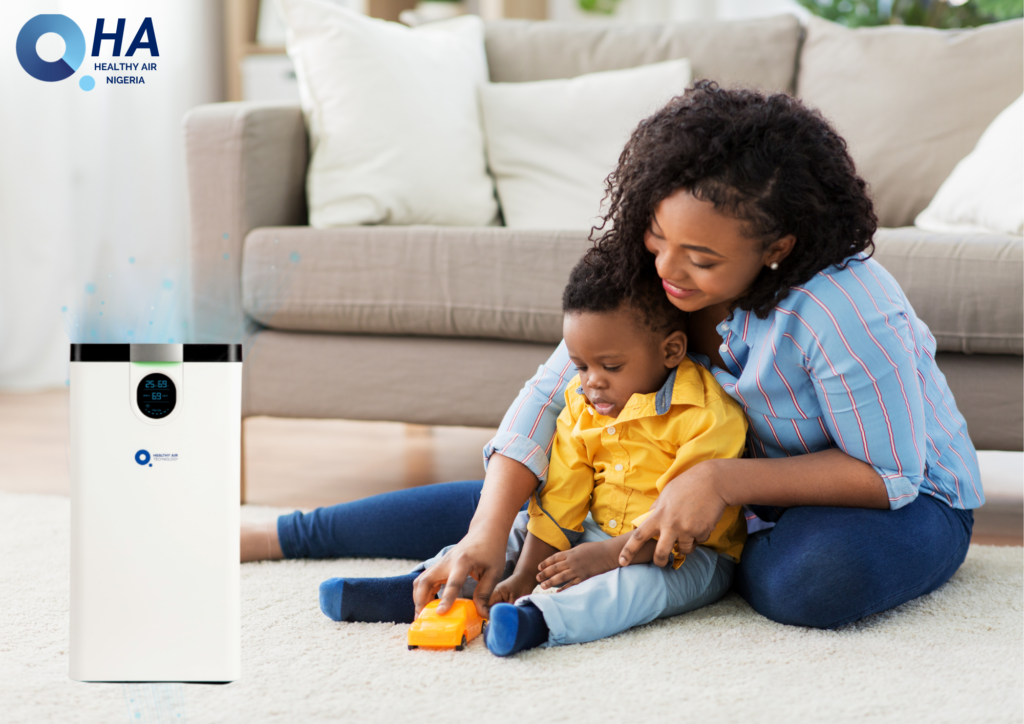Birthing your bundle of joy is a promise of hope – a new life, full of possibilities and promise. However, for many mothers and newborns around the world, this promise is threatened by inadequate access to quality healthcare, including pure oxygen-rich air. This World Health Day, we shine a light on the critical issue of maternal and newborn health, and explore ways to unlock healthy beginnings for a new and beautiful journey.
The State of Maternal and Newborn Health
Globally, approximately 810 women die every day due to preventable causes related to pregnancy and childbirth (1). Newborns face similar challenges, with an estimated 2.5 million deaths annually, mostly due to premature births, birth asphyxia, and infections (2). These shocking numbers reveal a critical truth: every mother and newborn deserves access to top-notch care, including the simplest yet most powerful resource – clean, oxygen-rich air.

The Power of Pure Oxygen-Rich Air with Healthy Air DNO Catalyst Purifier
Pure oxygen-rich air is crucial for healthy beginnings. Installing Healthy Air D-orbital Nano Oxide (DNO) Catalyst Purifiers in indoor spaces (clinics and homes) will help remove airborne pollutants and toxins, creating a safe environment for mothers, newborns, and families.
Benefits of Healthy Air DNO Catalyst Purifiers:
- Removes up to 99.9% of pollutants and toxins
- Provides pure oxygen-rich air for healthy breathing
- Reduces risk of respiratory problems and infections
- Promotes healthy sleep and relaxation
- Supports immune system development in newborns
- Creates a safe environment for mothers, newborns, and families
By installing Healthy Air DNO Catalyst Purifiers in homes, offices, maternity wards, neonatal wards, and ICUs, we can ensure a healthier start for mothers and newborns.

Breaking Down Barriers
So, what can be done to address these challenges? Here are a few key strategies:
- Increasing Access to Skilled Healthcare Providers: Trained healthcare workers are essential for providing quality care during pregnancy, childbirth, and the postpartum period. In fact, studies have shown that skilled birth attendants can reduce maternal mortality by up to 50% (3).
- Improving Healthcare Infrastructure: Well-equipped healthcare facilities can help ensure that mothers and newborns receive the care they need. For example, investing in neonatal intensive care units can significantly reduce newborn mortality rates (4).
- Empowering Communities: Educating communities about maternal and newborn health can help promote healthy behaviors and increase demand for quality care. Community-based interventions have been shown to reduce maternal mortality by up to 30% (5).
A Promise of Hope
Despite the challenges, there is reason for hope. By working together – governments, healthcare providers, communities, and individuals – we can unlock healthy beginnings for mothers and newborns around the world by improving the quality of air that we, especially mothers and newborns breathe every day and everywhere. Utilizing the Healthy Air DNO Catalyst Purifier in enclosed indoor spaces, mothers and their newborns’ health and well-being can be secured while peacefully celebrating the joy of their precious gift.
Conclusion
This World Health Day, let us recommit to ensuring that every mother and newborn has access to quality healthcare, including pure oxygen-rich air for a healthier future. Together, we can fulfill the promise of hope that every birth represents.
World Health Day 2025 with Healthy Air – Healthy Beginnings for a Hopeful Future.
References:
- World Health Organization. (2022). Maternal mortality. https://www.who.int/news-room/fact-sheets/detail/maternal-mortality
- World Health Organization. (2022). Newborns: reducing mortality. https://www.who.int/news-room/fact-sheets/detail/newborn-mortality
- WHO, UNFPA, UNICEF, World Bank. (2014). Trends in Maternal Mortality: 1990 to 2013. https://www.who.int/news-room/fact-sheets/detail/newborn-mortality
- UNICEF. (2020). Neonatal Intensive Care Units. https://pmc.ncbi.nlm.nih.gov/articles/PMC9448625/
- WHO. (2018). Community-based interventions for improving perinatal and neonatal health outcomes. https://www.ncbi.nlm.nih.gov/books/NBK361904/


